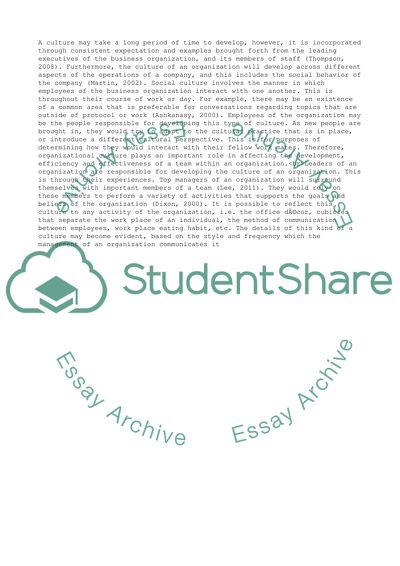Cite this document
(“Organizational Culture and Team Effect Paper Assignment”, n.d.)
Organizational Culture and Team Effect Paper Assignment. Retrieved from https://studentshare.org/business/1661971-organizational-culture-and-team-effect-paper
Organizational Culture and Team Effect Paper Assignment. Retrieved from https://studentshare.org/business/1661971-organizational-culture-and-team-effect-paper
(Organizational Culture and Team Effect Paper Assignment)
Organizational Culture and Team Effect Paper Assignment. https://studentshare.org/business/1661971-organizational-culture-and-team-effect-paper.
Organizational Culture and Team Effect Paper Assignment. https://studentshare.org/business/1661971-organizational-culture-and-team-effect-paper.
“Organizational Culture and Team Effect Paper Assignment”, n.d. https://studentshare.org/business/1661971-organizational-culture-and-team-effect-paper.


